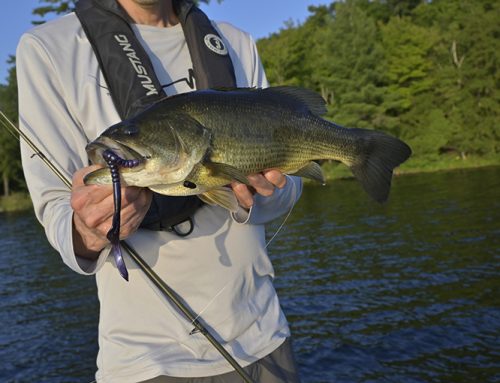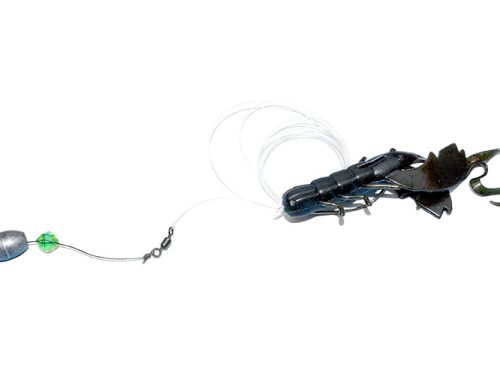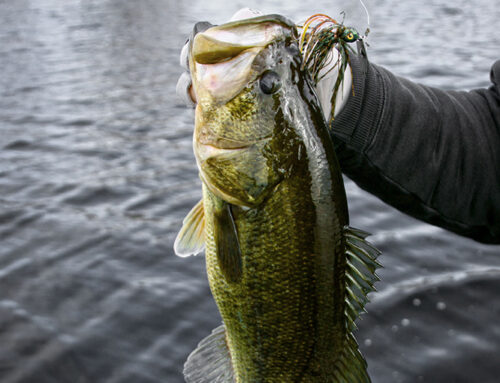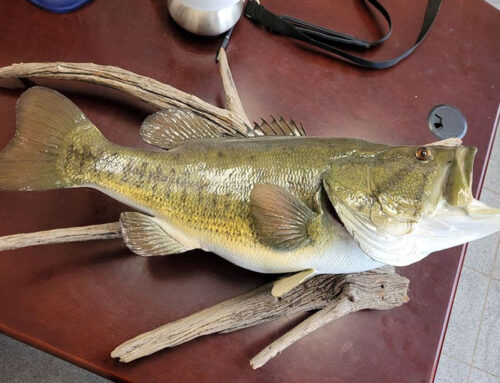If you’re lucky enough to live in the north, maybe June isn’t so special for you. But bass lovers in the south look forward to this month like no other.
Ontario OUT of DOORS has put together a fun quiz to get you in the mood for bass season. Are you an expert? How well do you know bass and their after hours activities? Test your knowledge, then scroll down for the answers and some interesting facts on these active fish.
1. What’s a defining difference between largemouth and smallmouth bass?
a. Largemouth are always bigger
b. Smallmouth are a solid colour
c. If its closed mouth extends beyond the eye, it’s a largemouth
d. All of the above
2. Bass eyes cannot adjust to bright light.
a. True
b. False
3. When do bass spawn?
a. Only on full moons
b. Only on new moons
c. When water temperatures drop
d. When water temperatures reach premium heights after ice-out
4. Bass will only eat when their stomaches are empty.
a. True
b. False
5. Females help the males guard the nests after spawning.
a. True
b. False
6. Where can bass be found?
a. Canada
b. United States
c. Mexico
d. Italy
e. Korea
f. All of the above
7. Large and smallmouth bass are capable of living in salt water.
a. True
b. False
8. What is the current Ontario weight record for largemouth bass?
a. 15.12 lbs
b. 14.32 lbs
c. 11.21 lbs
d. 10.43 lbs
9. What is the current Ontario weight record for smallmouth bass?
a. 12.4 lbs
b. 5.13 lbs
c. 9.84 lbs
d. 7.36 lbs
ANSWERS:
1. When closed, if the mouth extends beyond the eye, it’s a largemouth. If it stops before or in the middle of the eye, it’s a smallmouth.
2. True. Bass eyes are not hurt by bright sunlight, but they can’t adjust to it, giving them their reputation as lily pad and heavy-structure dwellers.
3. Bass will spawn when water temperatures in pre-spawn gathering areas have risen (not the shallows where the spawning takes place) to, on average, anywhere between 17 – 20 degrees Celsius.
4. False. Hunger has little to do with the eating habits of bass. Bass feed when their blood levels of energy drop, like sugar or fat.
5. Females don’t guard the nests after spawning. That job is handed over to the males. Females have been known to move and spawn at separate nests.
6. Bass can be found in all of the above places.
7. False. Although occasionally bass can be found in brackish water with varying degrees of salinity, they cannot live in salt water.
8. The record largemouth caught in Ontario is 10.43 lbs, by Mario Chrysanthou on Preston Lake in 1976.
9. The record Ontario smallmouth bass is 9.84 lbs and was caught by Andy Anderson on Birch Bark Lake near Kinmount, back in 1954.
How did you do? If you manage to set any new angling records this season, be sure to let us know. And if you want some tips to trick out your fishing gear, take a look at this story from OOD‘s bass columnist, Luigi De Rose.







Excellent. Good Article.